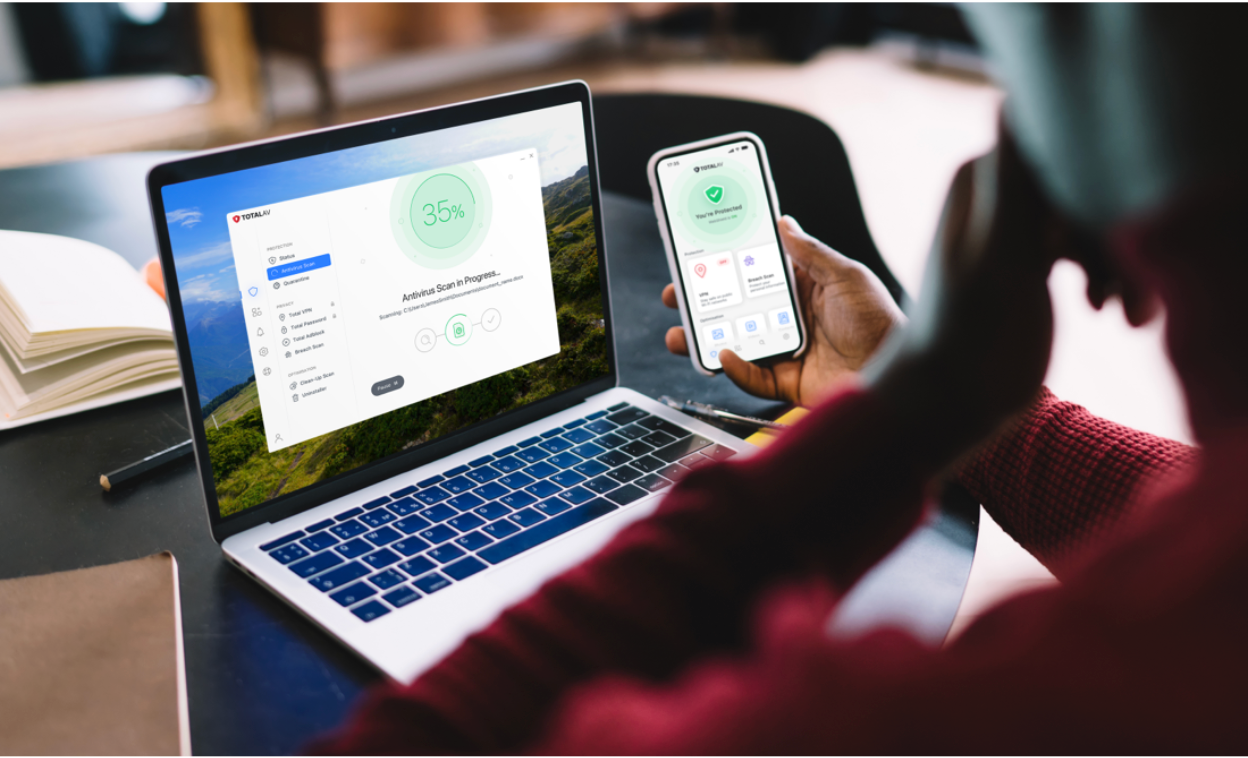Running a digital marketing agency today is like juggling flaming swords while riding a unicycle.
There’s managing numerous tasks simultaneously, keeping up with tight deadlines, and handling the constantly shifting demands of clients. The kicker is that you have to do all this with limited resources.
If you still stick to traditional project management, managing your daily operations will be overwhelming.
The good news is that it’s not all gloom. With AI-Powered Project Managers, you can give your agency the superpowers it needs to gain a competitive edge.
Let’s dive into how you can transform your agency with AI project management by making a crucial upgrade that will see you streamline workflows, optimize resources, and stay on top of all those complex operations.
But, first things first.
Key Challenges Faced by Agencies
Managing Multiple Projects with Limited Resources
Both smaller and larger agencies frequently find themselves managing multiple projects with small crews and limited resources.
In fact, a recent survey by Workfront shows that 80% of marketers feel they are understaffed and overworked. On the same note, over 33% of marketers say that lacking resources is a significant challenge for them.
For digital agencies, this means one thing: a constantly exhausted and overburdened workforce that struggles to meet its deliverables.
Ensuring Timely Delivery Amidst Shifting Client Priorities
One of the biggest hurdles for digital agencies is navigating the ever-changing landscape of client demands. When a project seems on track, clients often introduce new ideas, shift priorities, or request last-minute changes—sometimes even right before final approval.
Not only do these changes stretch timelines, but they also put additional pressure on teams and resources. The balance is between maintaining client satisfaction and protecting the agency’s workflow. Staying agile and setting clear expectations and boundaries from the start are essential.
Maintaining Transparency and Communication Across Distributed Teams
We are in the era of remote work. This often means working with a distributed team across different time zones, which is common for most agencies.
A great example is Automattic agency, the company behind WordPress.com and Tumblr. It runs a fully distributed team of around 1,500 people across 80+ countries. They rely on tools like Slack and their P2 platform to stay connected and collaborative. This global setup helps them tap into diverse talent and offer around-the-clock support.
While this is the new normal, it has also created a new challenge: maintaining transparency and communication throughout a project’s lifecycle.
Too often, there is a total lack of communication or miscommunication, leading to project delays or unmet deliverables.
Accurately Forecasting Budgets and Timelines
The success of digital agencies depends on how well they can forecast budgets and timelines for projects they handle.
However, most agencies don’t track their billable utilization. This makes it challenging to forecast resource needs and project profitability accurately.
As a result, digital agencies must contend with the burden of most projects exceeding their budgets and timelines.
How AI Solves These Pain Points
Now to the most interesting part. Let’s look at how AI can help you solve these challenges.
Automating Routine Tasks
As efficiency in project management has become essential for digital and creative agencies, AI project management tools have come to the rescue. One of the most notable ways is by automating the boring, mundane stuff.
Now, with AI-enabled tools like Asana, , and Trello, project managers don’t have to spend an extra 5 to 8 hours each week manually tracking projects.
They can instead focus on high-value tasks while AI bots handle the essential yet tedious tasks such as scheduling meetings, sending reminders, tracking project progress, and updating Gantt charts.
Smarter Resource Allocation
While project managers can often do much more with significant resources, agencies must master running lean operations. AI-powered project managers are the secret to achieving this, as they can accurately assess workloads and suggest optimal team structures.
The best part is that AI has no bias and will effectively analyze the team’s capacity, identify skill gaps, and find the best way to use available resources to drive project profitability.
All tasks will also be assigned based on the current workload. This solves the problem of some team members being overworked and suffering burnout.
Real-Time Collaboration, No Matter Where Your Team Works
Having a remote team doesn’t mean communication has to suffer. With AI-powered project management tools, staying in sync is easier than ever.
Features like real-time updates, intelligent notifications, and context-aware messaging help teams stay aligned and collaborate seamlessly, regardless of their location.
For example, Loom AI transcripts make video updates searchable and the information readily available. Slack AI can summarize hundreds of messages for instant clarity, and Figma’s AI design assistant will offer layout suggestions based on team feedback.
Insightful, Instant Reporting for Clients

Reports and analytics are the lifeblood of agency operations. As Tony Zayas, Insivia’s Chief Revenue Officer, says, “Ignoring data-driven marketing is like ignoring taxes or the warning lights on your car’s dashboard.”
Luckily, the days of spending hours on client status reports are behind us. With AI automation tools, you can generate real-time, insightful reports in minutes without requiring manual work.
These reports are not just simple messages; tools like Tableau AI show milestone progress visuals and crunch the data for better clarity on project status.
Specific Benefits for Digital Agencies
This section breaks down the benefits AI will add to your agency.
Faster Turnaround Times
AI superpowers agencies by enabling teams to work faster and smarter.
Incorporating an AI project manager means that routine tasks will be automatically handled, communication will be streamlined, and project progress will be actively monitored. Ultimately, your team will be more efficient, delivering more work without being overburdened.
Improved Profit Margins
By automating repetitive tasks, streamlining workflows, and reducing staffing costs, AI helps free up time and resources that can be better spent on strategy and growth.
These tools do more than free up time; they deliver real, measurable value. By analyzing data in real time, AI helps agencies identify the right audiences, fine-tune their sales strategies, and adjust pricing based on market trends. The result? Smarter decisions that drive higher revenue and long-term growth.
In addition, AI enhances marketing performance, improves customer retention, and streamlines day-to-day operations, resulting in reduced expenses across the board. Regarding pitching and negotiating, AI-driven analytics give teams the confidence to price their services competitively while protecting their margins.
Stronger Client Relationships

It can take months to win over a client, but just one misstep to lose them. Poor communication or a lack of transparency can quickly erode trust.
That’s why consistently delivering timely, insightful reports is so important. Clients gain confidence in your process when they see clear, data-backed updates and on-time results. Over time, that trust strengthens your reputation and sets you apart in a crowded market.
Scalability
With the aid of AI project managers, your agency can take on more work without needing new hires.
Everything will be streamlined, and mundane tasks will be taken care of. Your team will be free to focus on high-value tasks and tackle more projects..
How to Bring AI Project Managers Into Your Agency
Follow the following steps to power up your agency with AI.
Pick the Right Tools
Before you rush into adopting AI for project management, you must consider the gap you want to fill. What is your most pressing need?
Once you know your problem, you can efficiently tackle it by picking the best AI tools. Trello, Asana, and are fantastic for task automation. Float and Forecast.app are built for resource planning. Tableau and Power BI are used for client reporting. QuickBooks AI and Jira PPM are used for budget forecasting.
Train Your Team
AI isn’t just another project management tool: It’s a new way of working. That means your team will need time (and guidance) to integrate it into their workflows fully. Why?
Because AI is only as effective as the people using it. To get real value, invest in training that goes beyond the basics. Focus on prompt writing, data interpretation, and strategic thinking. The real impact starts when your team knows how to communicate with AI and act on its insights.
Pilot Programs
Rome wasn’t built in a day, and your AI rollout shouldn’t be either. Start with a small pilot project to test the waters. Track key metrics like time saved, error reduction, and client feedback to measure impact. This approach helps you build confidence, spot potential roadblocks early, and scale more effectively.
Integrate with Existing Systems
Make sure your AI tools integrate seamlessly with the systems your team already uses, such as your CRM, ERP, and communication platforms such as Slack. Integration is what ties everything together.
It ensures that data flows effortlessly across tools, eliminates manual entry, and reduces the risk of miscommunication or duplicate work.
Case Study: How Accenture Used Virtual Project Assistant “Ask Emma”
Accenture, a global digital agency, introduced “Ask Emma,” an AI-powered virtual project assistant, designed to support project managers by automating key tasks. From scheduling meetings to tracking deadlines, “Ask Emma” automates routine administrative tasks, enabling project managers to focus on strategic decisions.
Implementing “Ask Emma” led to significant improvements in project efficiency. By automating repetitive tasks, Accenture reduced the manual workload on its project management teams, enabling them to dedicate more time to higher-value activities.
The AI assistant delivers real-time insights, helping project managers make quicker, more intelligent decisions. By spotting risks early and streamlining workflows, “Ask Emma” has improved delivery timelines, reduced errors, and positioned Accenture as a leader in AI-driven project management.
What’s Next? AI Trends to Watch
- Generative AI for project management will soon help teams ideate faster—think automated brainstorming sessions.
- Natural language processing is evolving to manage complex team communication and even translate client emails into task items.
Agencies that adopt these features early will have a competitive advantage in terms of scale, speed, and creative output.
Final Thoughts
AI isn’t here to take over project managers’ jobs—it’s here to make them unstoppable. For agencies, AI project management means better decisions, less stress, and more room to grow. If your agency wants to stay sharp in 2025 and beyond, now’s the time to get on board.
Frequently Asked Questions
How can AI help digital agencies manage projects more efficiently?
AI can automate repetitive tasks, such as scheduling, reporting, and task tracking, freeing project managers to focus on strategy and client communication. It also provides real-time insights and predictive analytics to help teams stay on track and avoid delays.
What kind of tasks can AI-powered project assistants handle?
AI assistants can manage meeting schedules, generate client-ready status reports, track project progress, flag potential risks, and suggest resource adjustments, making day-to-day project management faster and more accurate.
Will our team need training to use AI tools effectively?
To get the most out of AI, team members should be trained in prompt writing, data interpretation, and integrating AI into their workflows. The better your team understands how to use AI, the more value it will bring.
Can AI tools integrate with our existing systems, like Slack or our CRM?
Most modern AI tools are designed with integration in mind. They can sync with CRMs, ERPs, communication platforms like Slack, and other tools your agency relies on, ensuring smooth workflows and consistent data across platforms.
What’s the best way to start using AI in our agency?
Start small. Run a pilot project using AI tools on a single campaign or client. Track metrics like time saved, accuracy, and client feedback to evaluate its impact. Once you see results, you can confidently scale AI use across more projects.










